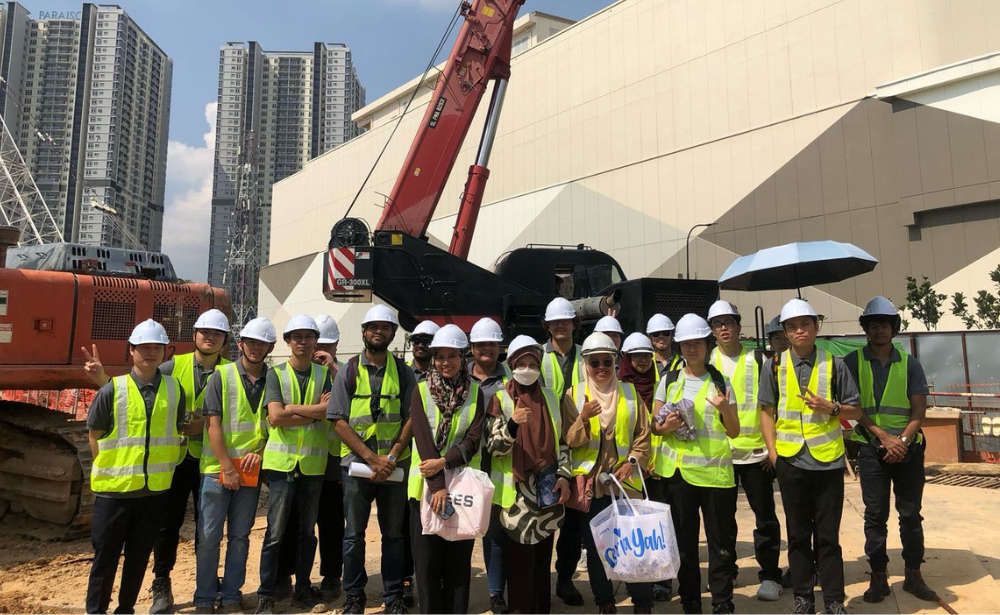建筑业的发展日新月异,世纪大学也致力于通过实际的学习经验来确保学生们为建筑业做好准备。2025年2月12日,17名工料测量(荣誉)理学士学生在3名讲师的陪同下,前往吉隆坡武吉加里尔Pavilion附近的47层服务式公寓项目进行实地考察。此次参观旨在将课堂知识与实际应用相结合,为学生们提供上层建筑施工、深地下室工程和土木基础设施开发方面的宝贵经验。
该工地位于城市高密度区,由于毗邻现有建筑,面临着岩土工程方面的挑战,需要创新的解决方案来确保结构的稳定性和安全性。参观以安全简报开始,随后在项目经理和现场工程师的带领下进行了全面参观。学生们参观了正在进行的地下室深层挡土墙施工,这是现代高层建筑开发中的一项基本技术。研究表明,超过 70% 的城市建设项目面临着与土壤相关的挑战,这凸显了在场地准备和岩土工程解决方案方面扎实的基础知识的重要性。
这次访问的一个重要收获是对建筑工地安全的重视,学生们严格遵守安全协议,包括佩戴安全帽和穿防护鞋。根据国际劳工组织(ILO)的资料显示,建筑业仍然是最危险的行业之一,全球每五宗工作场所死亡事故中就有一宗是发生在建筑业。通过灌输安全第一的思想,世纪确保毕业生在未来的职业生涯中将风险管理与工地安全放在首位。
除了接触技术外,这次参观还鼓励了批判性思维和解决问题的技能,因为学生们分析了现场准备技术、材料选择和现场挑战。研究表明,与传统的讲授式教育相比,实践学习可将学生的学习保持率提高 75%,因此,体验式学习是未来就绪教育的重要组成部分。现在,学生们将通过一项作业来应用他们的研究成果,制作一份详细的报告和海报展示,以加强他们对现代建筑实践的理解。
这次的访问凸显出学术学习与业界参与相结合的重要性,让学生们有信心的应对现实世界中复杂的建筑环境。这次的经验反映出世纪与业界紧密的合作关系,并致力于培育有能力的专业人才,为马来西亚的建筑环境领域作出有意义的贡献。建筑业为马来西亚GDP贡献了近6%,训练有素的毕业生是确保建筑业持续增长的关键。
通过积极参与实践学习与业界合作,世纪巩固了其在工程与建筑环境教育上的领导地位。让学生亲身接触大型的基础建设项目,对于培养高技能,适应性强的专业人才,以满足不断发展的行业需求是至关重要的。
组织此次活动是为了支持以下联合国可持续发展目标 (SDG):
可持续发展目标 4 优质教育
可持续发展目标 9 工业、创新和基础设施、
可持续城市和社区


